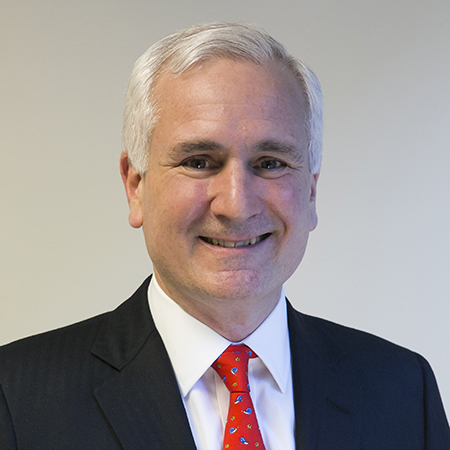Pandemic Perspectives: R&D Lessons Learned From The COVID Year
A Biotech Roundtable, Part 1
Executive Summary
The ways companies found to move forward during the challenging year also offer opportunities for industry to improve. During a roundtable discussion with Scrip, execs from Athira, Cartesian, Cyclacel, Tonix and VOZ Advisors weighed in on the adaptations they made and what changes they’ll stick with.
Pandemic Perspectives
One year on from the World Health Organization declaring COVID-19 a global pandemic on 11 March 2020, editors across Informa Pharma Intelligence publications are taking a closer look at its impact and possible lasting implications for the biopharma and medtech industries.
While the pandemic presented many obstacles to doing business as usual, the biopharmaceutical industry managed to keep going – finding ways to accelerate discovery, development and production to provide therapeutic and prophylactic solutions to COVID-19, and also finding ways to carry on with its regular work.
Scrip gathered together several biotech executives to discuss approaches that companies found to work through the challenges presented by the pandemic, and the lessons learned that can help shape business practices in the future. Part 1 looks at how clinical trials and operations were affected, how regulators helped, and what that might mean for clinical trial conduct and design in the future. Part 2 will cover business development, investment and strategic shifts for the industry.

Leen Kawas
CEO of Athira Pharma
The neurology company was closing a series B when the pandemic started, ran two ongoing trials in Alzheimer’s disease, started a trial in Parkinson’s dementia – and went public in September.

Murat Kalayoglu
CEO of Cartesian Therapeutics
Focused on mRNA-engineered cell therapy in cancer and autoimmune diseases, Cartesian had three products in clinical trials in 2020 and created a respiratory program and an ARDS candidate for COVID-19.

Spiro Rombotis
CEO of Cyclacel Pharmaceuticals
A cancer company focused on cell cycle biology, Cyclacel had two drugs in the clinic in 2020. Rombotis is also on the board of BioNJ.

Seth Lederman
CEO of Tonix Pharmaceuticals
Completed ongoing Phase III trial in fibromyalgia and started another last year; Tonix also adapted its novel vaccine platform with a COVID-19 candidate entering Phase I in 2021.

Claudia Hirawat
Executive chair of VOZ Advisors
Former president of PTC Therapeutics and a volunteer EMT during the height of the pandemic, Hirawat now consults on patient perspectives.
Early on in the pandemic, many clinical trials were put on hold as patients were locked down and health care providers and facilities were redirected to address the COVID-19 crisis. (Also see "Lilly, Galapagos Put Some Trials On Hold Due To Coronavirus Concerns" - Scrip, 23 Mar, 2020.) But a combination of regulatory guidance, digital technologies and better pandemic protection protocols allowed most of those trials to get up and running, and new ones to start. Several of the companies represented on the panel had trials ongoing and some also launched trials in 2020.
Necessity Is The Mother Of Invention
Many of the tools that enabled clinical research to continue during the pandemic already existed, but with stakes so high for clinical trials, sponsors have been reticent to take on the risk of adopting new technologies. (Also see "When The Trial Site Is A Living Room: Pharma Explores Virtual Research Options" - In Vivo, 21 Jan, 2019.) The pandemic forced the situation and fundamentally de-risked many digital tools and technologies. Instead of being on the periphery, digital tools for patient monitoring and shifting from clinic visits to remote care became normalized. (Also see "COVID-19 Pandemic Accelerates Shift Toward Virtual Trials" - In Vivo, 1 Apr, 2020.)
“The interesting thing is technologies that allowed for remote monitoring were available, but [weren’t] adopted and what the pandemic did to our industry, it forced physicians, it forced sites, it forced monitors to start using the technologies. And once … we started using them, they actually started improving really quickly and enabled sponsors, clinical research organizations and scientists to do things more efficiently,” Athira Pharma, Inc. CEO Leen Kawas said.
That increased efficiency should drive continued adoption post-pandemic. And there will likely be a mix of digital and conventional clinical trial methodologies, though Kawas expects the pandemic experience to shift how often in-person activities are needed. That applies to setting up clinical trials as well, which Athira did mid-pandemic, selecting sites and finding investigators. Some of those operational aspects will likely change to more virtual/remote options as well. “We still need that personal component for monitors to go to the sites but not as intensely as it was pre-pandemic,” she said.
Data management at trial sites is another aspect where industry is unlikely to return to old practices, Cyclacel Pharmaceuticals, Inc. CEO Spiro Rombotis believes. Clinical trial sites might have been resistant to opening up their case report files in the past, but now “some have clearly been catalyzed by the pandemic to give us remote access. That's a sea change – we're not going to go back after we tasted that direct access, which of course has lots of implications for the speed of enrollment and wasting of unnecessary time collecting relevant data,” he said. “And also the fact that we can now do source data verification quickly and almost real time … we avoid a lot of catch up, you know, records misplaced, staff turnover, all that dysfunctionality we encountered in the past that added weeks and months to clinical trial enrollment.”
Easing Enrollment
Recruitment and enrollment was slower throughout the pandemic, Cartesian Therapeutics, Inc. CEO Murat Kalayoglu noted. “Overall, I think it's been a very tough year for patient enrollment, recruitment across the board,” he said. Cartesian had been running a myasthenia gravis trial for its cell therapy Descartes-08. “We've had to deal with some of the slowdown in enrollment and the sites, etc. I mean, I think fortunately … as the vaccination rates have increased sites have started to come back on online.”
The pandemic has opened the door to “a lot of opportunities for us to use efficiencies in both clinical conduct and recruitment and initiation of the trials,” Athira’s Kawas added. She expects clinical trial enrollment to be much easier over social media going forward. “Social media has not been a super-strong tool to recruit patients,” she explained, but “now there's an increased attention because people are spending more time at home.”
Patient advocate Claudia Hirawat, VOZ Advisors, noted that patient communities are matching the energy sponsors are putting into sustaining trials. Patient groups are encouraged by the “level of engagement and creativity in really going beyond what [sponsors] normally do,” which has patients “trying to figure out how can they support the sponsors, and by supporting the sponsors, the trial populations by extension.”
Tonix Pharmaceuticals Holding Corp. CEO Seth Lederman said his company was able to keep its Phase III program in fibromyalgia enrolling, in part due to modifications made with the US Food and Drug Administration and in part because the trial endpoints were easily measured remotely. “We rapidly adapted the protocol and amended the protocol to correspond with the FDA guidelines to conduct this study safely, and to minimize the number of patient visits, and to swap many in-person visits for telephone visits and the rest of it,” Lederman explained. “So we were able to keep that study going. And we had a surprising outcome that, because we pushed through and continued to recruit safely, we actually had faster than expected enrollment.”
“Fortunately, the FDA was very quick in issuing guidelines for safe conduct studies. And we were fortunate to adapt and had a good outcome in that trial, notwithstanding all the other troubles of COVID-19,” Lederman said. Their endpoints did not require diagnostic procedures and so were able to be collected via a phone-based app, he noted.
More On Post-Pandemic Clinical Trial Reforms
- What The Pandemic Can Teach Us About Running Clinical Trials
- COVID-19 Will Spur Decentralized and Hybrid Trials – Novartis Hails Digital Investment
- Digital Acceleration: Low-Hanging Fruit And Stretch Goals
- COVID-19 Should Force ‘Soul Searching’ Over Fragmented US Clinical Trials System, Woodcock Says
Lederman offered a cautionary note on some of the remote processes. “But I will say, I wonder if it's something that we'd like to repeat endlessly. Or I wonder if it's that we were, to some extent … coasting on relationships that we've forged over the years with clinical sites, investigators and other people. Because it was a challenge to communicate. And while there were advantages to some of the remote access … I think all in all, it would be good to go back to the old way.”
“Maybe hybrid,” Kawas added, “because there are some good things that definitely have improved.”
From a patient perspective, Hirawat said “there's been a lot of opportunity for improving things,” and there’s desire to make permanent changes. Patients have been working hard with companies “in trying to hold on to some of these areas where they feel there's been significant improvement, [like] areas where infusion therapies have now switched from being centralized into a treatment center to having a nurse come at home, having assessments that are done over the telephone or even video via Zoom.” She pointed out that a lot of advisory boards have patients from all over the world and “one of the surprises for us was that they really enjoy being on Zoom because they get to be with people from all over the world at the same time, as opposed to grouped regionally.”
From Regulatory Responsiveness To Change
The pandemic required changes to clinical trial design, and regulatory agencies did issue guidances about how to make these amendments and account for missing data.
The panelists were uniformly appreciative of the reaction from regulators like the FDA and European Medicines Agency, their timeliness and their flexibility. But some voiced concern about the impact the pandemic had on the actual clinical results collected and what that could mean for interpreting the trial, and others suggested that this be used as a starting point for change in statistical analysis methodology.
“You more than expected regulators to be responsive, work with you, but not really … compromise on the work that they're doing. And so from that perspective, certainly, the FDA, I think met its mark at least as far as cell and gene therapies are concerned,” Kalayoglu said. ”By and large, I was quite impressed over the last year in terms of their responsiveness and willingness to work with at least us, and from what I understand with other sponsors as well.”
“That was our experience as well. We didn't have any regulatory issues in this difficult 12 months we've all gone through,” Rombotis noted, but he is concerned issues could arise with data collected during the pandemic.
Hirawat pointed out that psychological impact can affect cognitive behavior, such as that assessed in the Alzheimer’s disease and Parkinson’s dementia trials Athira was running, and also Tonix’s fibromyalgia trial because pain can be impacted by someone’s state of mind as well as by the ability to be out and active. One of her clients did have a problematic situation “where the data from the COVID period has been so marked in terms of difference from the findings from the non-COVID period that there is an active dialogue with the FDA in terms of separating those two periods,” she said.
“The FDA did not make a clear statement of how they're going to review the data for us specifically for Alzheimer's disease,” Kawas said. The issue Hirawat raised “was something that the regulators could not focus on or predict right off the bat. So there are learnings, and our experience is there's openness to appreciate that we are working in a different environment, and how do we address this unusual environment that we're in and work with sponsors to support data interpretation and clinical conduct.”
The confounding impact of the pandemic could lead to a loss of clinical equipoise, Rombotis suggested. “If you have a questionnaire or score-based outcomes endpoint, and the patient is depressed because [of] the pandemic and they happen to be in the placebo group, you can imagine what this does to the outcome of the study, [it] probably obscures the signal … at the expense of [the] veracity of the trial and probably increases noise,” he explained.
However, the impact affects both the placebo and treatment arms, Kawas argued, and “in any environment, whether it's pandemic or non-pandemic, there could be specific environmental effects that we cannot control for.” Clinical trials are designed to address some of these potential effects, she pointed out. “I don't think the pandemic is any more challenging in this specific point … because people only think about how is this going to affect the treatment arm, but it could also have a similar and most probably 50/50 chance that this will have a similar impact on both arms.”
Any issues will ultimately need to be worked through with regulators, Kawas concluded. “They did acknowledge that we will see different trends and we just need to be flexible, and address this as we work with the different sponsors on the datasets that are provided to the FDA.”
Lederman suggested that in the wake of the pandemic and the focus it has brought on clinical trial design, “it's time to begin modernizing some of the statistical treatments that are being used.” He noted Tonix has been working with University of California-Berkeley statistician Philip Stark on nonparametric methods to analyze clinical trials. It used to be “very computationally hard to use nonparametric methods,” Lederman explained, but Tonix has been applying the new methods to old data as well as ongoing studies, and has seen “quite a variance using a classic nonparametric method compared to the parametric method.”
He concluded, “The bottom line is that I think we really have to get back to the basics now that we have the computational power to use nonparametric methods. And I think that they are better and we have … two cases where we think the nonparametric statistical method was better than the type of analysis [that] has become classic.”
The pandemic has forced people to think about randomization more carefully, Kawas agreed, and going forward could push industry “to modernize, or be more critical to how we think about things.”
Plumbing The Pipeline
There are also lessons to be learned from how companies were able to pivot to react to COVID-19, repurposing drugs in the pipeline – like Gilead’s Veklury (remdesivir) – or creating new vaccine candidates, as Tonix did.
The urgent need for industry to respond “made us think about what else we could do with our platform, beyond oncology and autoimmune,” Kalayoglu said, which brought Cartesian into a new therapeutic area. It is now the first cell therapy company looking at respiratory disease. During 2020, Cartesian started the program in respiratory and developed an allogeneic cell therapy candidate to target acute respiratory distress syndrome, including COVID-19. The Descartes-30 program went from concept in April 2020 to IND four months later.
Tonix had been working on a novel vaccine platform for seven years, and while no one had paid attention to its horsepox vaccine, it was able to pivot to target COVID-19. As a live replicating virus platform, development takes longer than the mRNA vaccines pioneered by Pfizer/BioNTech and Moderna. But “the mRNA success does show that we can make new types of vaccines,” Lederman said, and has breathed new life into the vaccine industry. Tonix expects to move its COVID-19 vaccine into Phase I this year.
